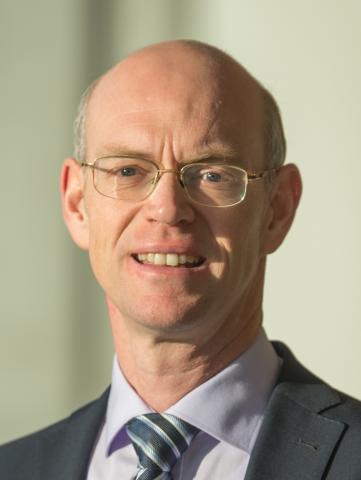 Novel Antenna Design Paradigms for Sustainable Wireless Communications
Novel Antenna Design Paradigms for Sustainable Wireless Communications
prof. Hendrik Rogier
Ghent University, Belgio
Venerdì 20 Aprile
Macroarea di Ingegneria
Sala ARCHIMEDE
ore 9:30-10:30
Abstract – The 5G wireless communication system will offer, in addition to high-data rate wireless communication, a large heterogeneity of services. As such, 5G will also form the backbone for the Internet of Things, Smart Surfaces and Wearables. Novel antenna systems for these new technologies will be subject to high levels of random fluctuations. On the one hand, fabrication tolerances will become more important when moving to millimeter-wave operation frequencies, as required for high data throughput, or when relying on common off-the-shelf substrate materials and inexpensive manufacturing techniques, to reduce cost.
In this lecture, we propose a novel holistic paradigm for the design of antenna systems as part of a sustainable wireless communication system. This strategy is founded on four fundamental pillars. First, the designer must select the right materials and fabrication technologies, to ensure user comfort, robustness, production yield and acceptable cost. Second, a design process must be adopted that includes the antenna system in its initial stages and synergistically integrates electronic circuitry and energy harvesters on this antenna platform. This also contributes to the third step, which maximizes energy autonomy. In a final step, the designer must leverage stochastic design tools to include variability and uncertainty.
Bio– Hendrik Rogier received the Electrical Engineering and the Ph.D.degrees from Ghent University, Gent, Belgium, in 1994 and in 1999, respectively. He is a currently a Full Professor with the Department of Information Technology, Ghent University, a Guest Professor with the Interuniversity Microelectronics Centre, Ghent, Belgium, and a Visiting Professor with the University of Buckingham, Buckingham, U.K. From October 2003 to April 2004, he was Visiting Scientist at the Mobile Communications Group of Vienna University of Technology. He authored and coauthored about 145 papers in international journals and about 160 contributions in conference proceedings. His current research interests are antenna systems, radiowave propagation, body-centric communication, numerical electromagnetics, electromagnetic compatibility and power/signal integrity. He was twice awarded the URSI Young Scientist Award. Moreover, he received the 2014 Premium Award for Best Paper in IET Electronics Letters and several awards at conferences. He is an Associate Editor of IET Electronics Letters, IET Microwaves, Antennas and Propagation, and the IEEE Transactions on Microwave Theory and Techniques. He acts as the URSI Commission B representative for Belgium and is a Senior Member of the IEEE.
Il seminario è stato organizzato da
Laboratorio di Elettromagnetismo Pervasivo
prof. Gaetano Marrocco
gaetano.marrocco@uniroma2.it
pervasive.ing@uniroma2.it
